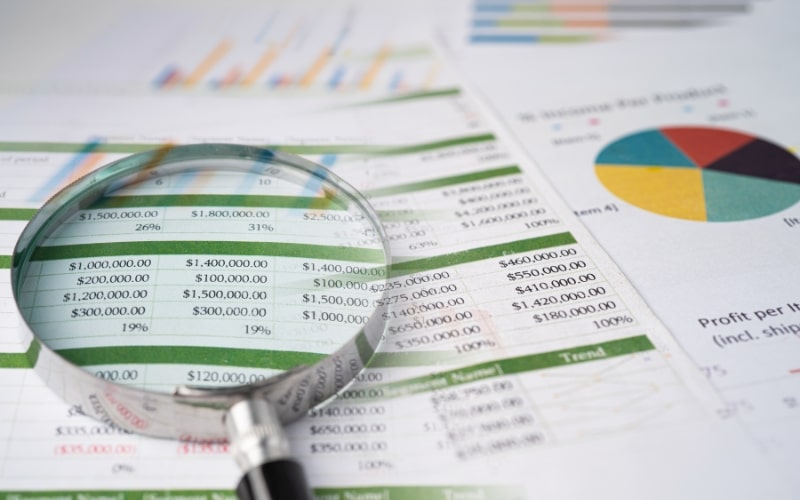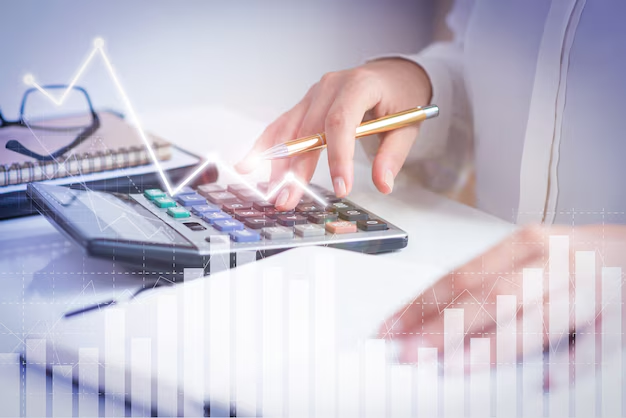- 1. The Strategic Role of Management Accountants
- 2. Forensic Accountants: Guardians Against Fraud
- 3. The Value of Cost Accountants in Budgeting and Cost Control
- 4. Environmental Accountants: Navigating the Green Economy
- 5. Technology and Accounting: The Rise of IT Accountants
- Conclusion: Accounting Position Inside Your Organization
In today’s complex and dynamic business environment, the role of accountants has evolved beyond traditional bookkeeping and financial reporting. Organizations now rely on specialized accountants who bring unique expertise and insights to various aspects of business operations. From strategic planning and fraud prevention to cost control and sustainability, these accounting professionals play a critical role in driving organizational success. Accounting Position Inside Your Organization You May Be Missing… is one that can significantly influence your business’s strategic outcomes. This article explores how each accounting position inside your organization adds value, focusing on management accountants, forensic accountants, cost accountants, environmental accountants, and IT accountants. By understanding the distinct contributions of each type of accountant, businesses can better appreciate how these roles help navigate the challenges of the modern economy and enhance overall performance.
1. The Strategic Role of Management Accountants

Management accountants play a pivotal role in organizations by bridging the gap between financial data and strategic decision-making. Unlike traditional accountants, whose primary focus is on historical data and compliance, management accountants are essential for any Accounting Position that requires forward-looking insights and analysis. This proactive approach makes them indispensable to any organization aiming to maintain a competitive edge in today’s fast-paced business environment. For those considering an Accounting Position, the role of a management accountant offers a unique opportunity to influence business growth and efficiency.
Defining the Role of Management Accountants
Management accountants, also known as managerial accountants, play a crucial role in any accounting position by providing internal stakeholders with the financial information they need to make informed decisions. Their responsibilities go beyond preparing financial statements and ensuring regulatory compliance. They delve into the analysis of financial data, identifying trends, forecasting future financial performance, and developing strategic plans to enhance organizational performance. In their accounting position, they work closely with senior management, offering advice on budgetary planning, resource allocation, and performance management.
Contribution to Strategic Planning and Decision-Making
One of the core functions of management accountants is to support strategic planning. They achieve this by analyzing financial data to identify opportunities for cost savings, revenue enhancement, and overall operational improvement. In their Accounting Position, management accountants utilize various tools and techniques, such as variance analysis, financial modeling, and key performance indicators (KPIs), to provide a comprehensive picture of the organization’s financial health.
Their insights help in setting realistic financial goals, formulating business strategies, and assessing the potential risks and returns associated with different strategic options. For instance, a management accountant in an Accounting Position might analyze the financial implications of entering a new market, launching a new product, or investing in new technology. By providing detailed cost-benefit analyses and financial forecasts, they enable managers to make decisions that align with the organization’s long-term objectives.
Enhancing Operational Efficiency
Management accountants also play a crucial role in enhancing operational efficiency. In an accounting position, they do this by identifying inefficiencies and suggesting improvements in processes and systems. For example, through activity-based costing, management accountants can pinpoint the true cost of each activity within the organization, allowing managers to streamline operations and eliminate waste. This granular level of analysis ensures that resources are used effectively and that every dollar spent contributes to the organization’s overall goals.
Performance Management and Improvement
Performance management is another area where an accounting position adds significant value. Professionals in this accounting position develop and monitor KPIs to measure the effectiveness of various business functions. By regularly reviewing these metrics, individuals in this accounting position can identify areas where the organization is underperforming and recommend corrective actions. This continuous monitoring and feedback loop is essential for maintaining high standards of performance and achieving strategic objectives.
Case Study: Real-World Impact
Consider the example of a manufacturing company facing declining profits despite increasing sales. The management accountant, holding a critical accounting position within the organization, conducts a detailed analysis and discovers that rising production costs are eroding margins. By implementing a cost-control program and renegotiating supplier contracts, the management accountant, in this key accounting position, helps the company reduce costs and restore profitability. This example illustrates the strategic value that an accounting position brings to an organization, transforming financial data into actionable insights that drive tangible business outcomes.
2. Forensic Accountants: Guardians Against Fraud

Forensic accountants are financial detectives who specialize in investigating fraud and financial discrepancies within organizations. Holding a specialized accounting position, these professionals bring together expertise in accounting, auditing, and investigative skills, enabling them to uncover financial malfeasance and ensure that organizations maintain financial integrity. In an era where financial crimes are becoming increasingly sophisticated, the role of a forensic accountant is a critical accounting position dedicated to protecting businesses from fraud and financial misconduct.
Defining the Role of Forensic Accountants
Forensic accountants, also known as forensic auditors or investigative auditors, hold a specialized Accounting Position focused on examining financial records to detect and investigate fraud, embezzlement, money laundering, and other financial crimes. This Accounting Position requires a combination of accounting knowledge, auditing skills, and investigative techniques to scrutinize financial statements, identify anomalies, and gather evidence of fraudulent activities. Their work often extends beyond traditional accounting to include testifying as expert witnesses in legal proceedings, assisting in litigation support, and providing recommendations for improving internal controls to prevent future fraud.
The Investigation Process
The investigative process conducted by forensic accountants is meticulous and comprehensive. It typically begins with an initial assessment, where they analyze financial documents related to the specific accounting position involved, interview key personnel, and gather preliminary information to understand the scope and nature of the suspected fraud. This phase is critical for developing a clear investigative plan and identifying potential sources of evidence, especially as they pertain to the responsibilities of the accounting position in question.
Next, forensic accountants delve deeper into the financial records, employing various analytical techniques to uncover irregularities. These techniques may include data mining, trend analysis, ratio analysis, and forensic data analytics. By comparing financial data across different periods and identifying inconsistencies, forensic accountants can pinpoint suspicious transactions and patterns that may indicate fraudulent activities connected to the relevant accounting position.
Uncovering Fraud: Techniques and Tools
Forensic accountants utilize a range of techniques and tools to uncover fraud. One common method is the use of digital forensics, which involves examining electronic records, emails, and digital transactions to trace the flow of funds and identify fraudulent activities. They also employ advanced software and data analytics tools to sift through large volumes of financial data, making it easier to detect anomalies and patterns that might be overlooked through manual analysis.
Another critical technique is the application of Benford’s Law, a mathematical principle that predicts the frequency distribution of digits in naturally occurring datasets. Deviations from this expected distribution can signal potential fraud, prompting further investigation. Additionally, forensic accountants may conduct lifestyle audits to compare an individual’s reported income with their actual lifestyle and expenditures, uncovering discrepancies that suggest illicit activities.
The Importance of Forensic Accounting in Today’s Business Environment
The role of forensic accountants in an accounting position has become increasingly vital in today’s business environment, where financial crimes are more sophisticated and widespread. Companies face significant risks from internal and external fraud, including embezzlement, asset misappropriation, financial statement fraud, and cybercrimes. The financial and reputational damage resulting from such crimes can be devastating.
Forensic accountants not only help detect and investigate fraud but also play a crucial role in fraud prevention. Holding a specialized accounting position, they analyze an organization’s internal controls and recommend improvements, helping companies fortify their defenses against potential fraudsters. Their expertise in fraud risk management and internal control assessments is invaluable in creating a robust anti-fraud framework.
Case Study: Real-World Impact
Consider a mid-sized manufacturing company that noticed discrepancies in its financial statements. Upon engaging a forensic accountant, an investigation revealed a long-term embezzlement scheme by a trusted employee. The forensic accountant’s detailed analysis uncovered falsified invoices and unauthorized transactions, leading to the recovery of significant misappropriated funds and legal action against the perpetrator. This case highlights the critical role forensic accountants play in safeguarding organizations against financial fraud.
3. The Value of Cost Accountants in Budgeting and Cost Control

Cost accountants play a crucial role in the financial health of an organization by focusing on budgeting and cost control. Their expertise lies in identifying, recording, and analyzing costs associated with the production and delivery of goods and services. This detailed financial insight enables businesses to manage expenses effectively, optimize resources, and enhance profitability. Let’s delve deeper into the value of cost accountants and how they contribute to budgeting and cost control.
Defining the Role of Cost Accountants
Cost accountants, also known as managerial accountants or management accountants, specialize in analyzing the costs incurred by a business. Holding an essential accounting position, they work closely with production teams, procurement departments, and management to gather data on direct costs (such as materials and labor) and indirect costs (such as overhead). Their primary goal in this accounting position is to provide accurate cost information that aids in decision-making, pricing strategies, and financial planning.
Cost accountants prepare detailed cost reports that break down expenses into various categories, making it easier for management to understand where money is being spent. They also develop and maintain cost accounting systems, ensuring that all financial data is recorded systematically and accurately.
Budgeting: Planning for Financial Success
One of the key responsibilities of a cost accounting position is to assist in the budgeting process. Budgeting involves creating a financial plan that outlines expected revenues and expenses for a specific period, usually a fiscal year. Professionals in this accounting position play a vital role by providing detailed cost projections based on historical data, current market conditions, and future business objectives.
Their analysis helps management set realistic financial goals, allocate resources efficiently, and anticipate potential financial challenges. By identifying areas where costs can be reduced or better managed, individuals in this accounting position contribute to the creation of a budget that supports the organization’s strategic objectives and ensures financial stability.
Cost Control: Managing Expenses Effectively
Cost control is the practice of monitoring and managing expenses to ensure that they do not exceed budgeted amounts. A cost accountant in an Accounting Position is instrumental in this process, as they continuously track actual costs against budgeted figures and identify any variances. When discrepancies arise, cost accountants analyze the underlying reasons and provide recommendations to address them.
Effective cost control involves implementing measures to reduce unnecessary expenses, improve operational efficiency, and optimize resource utilization. Those in an Accounting Position work closely with different departments to identify cost-saving opportunities, such as renegotiating supplier contracts, streamlining production processes, and reducing waste. Their efforts help the organization maintain profitability and competitiveness in the market.
Tools and Techniques Used by Cost Accountants
Cost accountants play a crucial role in any accounting position by employing various tools and techniques to analyze and control costs. One common method is activity-based costing (ABC), which allocates overhead costs to specific activities based on their actual usage. This approach provides a more accurate picture of product and service costs, helping management make informed pricing and production decisions.
Another valuable technique used in a cost accounting position is variance analysis, which involves comparing actual costs to budgeted figures and identifying the reasons for any differences. Variance analysis helps management understand cost drivers and take corrective actions to align expenses with budgetary goals.
Cost accountants also use financial modeling and forecasting tools to project future costs and assess the impact of different scenarios on the organization’s financial performance. These tools enable management to make proactive decisions and adjust strategies in response to changing market conditions.
Real-World Impact: Case Study
Consider a manufacturing company facing declining profitability despite steady sales. By filling an Accounting Position with a skilled cost accountant, the company identified inefficiencies in its production process that were driving up costs. The professional in this Accounting Position conducted an analysis that revealed excessive overtime, high material waste, and suboptimal inventory management as major contributors to the problem.
By implementing the cost accountant’s recommendations—such as optimizing production schedules, improving quality control, and renegotiating supplier agreements—the company was able to significantly reduce costs and improve its profit margins. This example highlights the critical role of cost accountants in enhancing operational efficiency and supporting long-term financial success.
4. Environmental Accountants: Navigating the Green Economy

As the global emphasis on sustainability and environmental responsibility grows, the role of environmental accountants has become increasingly vital. These professionals specialize in integrating environmental and financial performance, ensuring that organizations not only comply with environmental regulations but also contribute positively to the green economy. Environmental accountants help companies navigate the complexities of sustainability by providing valuable insights into the financial impact of environmental initiatives and promoting eco-friendly practices.
Defining the Role of Environmental Accountants
Environmental accountants, also known as green accountants or sustainability accountants, occupy a specialized accounting position focused on the environmental costs associated with a company’s operations. This accounting position involves tracking and analyzing expenses related to energy use, waste management, and resource consumption. They also assess the financial benefits of sustainable practices, such as energy savings from renewable energy installations or cost reductions from waste reduction programs.
These accountants work closely with environmental managers, sustainability officers, and other stakeholders to develop comprehensive reports that detail the environmental impact of business activities. By quantifying the financial implications of environmental actions, they help organizations make informed decisions that balance economic performance with ecological responsibility.
Promoting Sustainable Practices
One of the primary contributions of environmental accountants, often holding an Accounting Position dedicated to sustainability, is their ability to promote sustainable practices within organizations. They achieve this by identifying cost-effective strategies for reducing environmental impact. For example, an environmental accountant in an Accounting Position might analyze the potential savings from implementing energy-efficient technologies or switching to renewable energy sources. By presenting clear financial benefits, they can persuade management to invest in sustainable initiatives.
Environmental accountants also play a critical role in developing and monitoring key performance indicators (KPIs) related to sustainability. These KPIs might include metrics such as carbon footprint, water usage, and waste generation. By tracking these indicators over time, environmental accountants help organizations measure the effectiveness of their sustainability efforts and identify areas for improvement.
Ensuring Compliance and Reducing Risks
Compliance with environmental regulations is a major concern for many businesses. Environmental accountants help organizations navigate the complex landscape of environmental laws and regulations, ensuring that they meet all legal requirements. This not only helps companies avoid costly fines and penalties but also enhances their reputation as responsible corporate citizens.
Additionally, environmental accountants assist in identifying and mitigating environmental risks. For instance, they might evaluate the financial risks associated with potential environmental liabilities, such as soil contamination or hazardous waste disposal. By proactively addressing these risks, organizations can protect themselves from significant financial losses and legal issues.
Case Study: Real-World Impact
Consider a manufacturing company that was facing rising energy costs and increasing pressure to reduce its carbon footprint. By engaging an environmental accountant, the company was able to identify several opportunities for energy savings. The accountant conducted a detailed analysis of the company’s energy consumption and recommended the installation of energy-efficient lighting, the implementation of a comprehensive recycling program, and the transition to renewable energy sources.
As a result of these initiatives, the company not only achieved substantial cost savings but also significantly reduced its carbon emissions. The environmental accountant’s analysis showed that the initial investment in sustainable technologies would be recouped within a few years through energy savings, making a compelling case for the company’s commitment to sustainability.
The Future of Environmental Accounting
The role of environmental accountants is expected to grow as more organizations recognize the importance of sustainability. With increasing stakeholder demand for transparency and accountability in environmental practices, environmental accountants will play a crucial role in helping businesses integrate sustainability into their core strategies.
Looking ahead, advancements in technology and data analytics will further enhance the capabilities of environmental accountants. Tools such as environmental management software and predictive analytics will enable more precise tracking of environmental metrics and better forecasting of the financial impacts of sustainability initiatives.
5. Technology and Accounting: The Rise of IT Accountants

The rapid advancement of technology has significantly transformed the accounting profession, giving rise to a new breed of professionals known as IT accountants. These specialists combine expertise in accounting principles with a deep understanding of information technology, enabling organizations to leverage digital tools and systems to enhance financial reporting, compliance, and decision-making processes. The role of IT accountants is becoming increasingly vital as businesses seek to navigate the complexities of the digital age.
Defining the Role of IT Accountants
IT accountants, also referred to as information systems accountants or tech-savvy accountants, are professionals who integrate accounting knowledge with information technology skills. Their primary responsibilities include designing and managing accounting information systems (AIS), implementing software solutions for financial reporting, and ensuring data integrity and security.
These accountants are adept at using various accounting software and enterprise resource planning (ERP) systems, which automate and streamline financial processes. They work closely with IT departments to develop and maintain systems that meet the organization’s financial needs while ensuring compliance with regulatory requirements.
Enhancing Financial Reporting and Analysis
One of the most significant contributions of IT accountants is their ability to enhance financial reporting and analysis. Traditional accounting methods often involve manual processes that are time-consuming and prone to errors. IT accountants utilize advanced software tools to automate these processes, resulting in more accurate and timely financial reports.
For example, they might implement a cloud-based accounting system that allows for real-time tracking of financial transactions and instant generation of financial statements. This not only improves the accuracy of financial data but also provides management with up-to-date information to make informed decisions.
Furthermore, IT accountants employ data analytics tools to analyze large volumes of financial data. By leveraging techniques such as data mining and predictive analytics, they can uncover trends, identify anomalies, and provide insights that drive strategic planning and operational efficiency.
Ensuring Data Security and Compliance
In an era where data breaches and cyber threats are prevalent, ensuring the security of financial information is paramount. IT accountants play a crucial role in safeguarding sensitive financial data. They implement robust security measures, such as encryption, access controls, and regular audits, to protect against unauthorized access and data breaches.
Additionally, IT accountants ensure that the organization’s accounting systems comply with relevant regulations and standards, such as the Sarbanes-Oxley Act (SOX) and the General Data Protection Regulation (GDPR). By maintaining compliance, they help mitigate the risk of legal penalties and enhance the organization’s reputation for reliability and trustworthiness.
Supporting Digital Transformation
Digital transformation is a strategic priority for many organizations seeking to stay competitive in the modern business landscape. IT accountants are at the forefront of this transformation, guiding businesses in adopting and integrating digital technologies that streamline financial operations.
For instance, IT accountants might lead the implementation of an ERP system that integrates various business functions, such as accounting, inventory management, and human resources, into a single platform. This integration enhances data visibility and improves cross-functional collaboration, leading to more efficient and effective business processes.
Moreover, IT accountants facilitate the adoption of emerging technologies, such as artificial intelligence (AI) and blockchain, in accounting practices. AI can automate routine tasks like data entry and reconciliation, freeing up accountants to focus on more strategic activities. Blockchain technology, with its decentralized and immutable nature, can enhance the accuracy and transparency of financial records.
Case Study: Real-World Impact
Consider a multinational corporation struggling with disparate accounting systems across its global operations. By engaging IT accountants, the company successfully implemented a unified cloud-based accounting platform. This system enabled real-time consolidation of financial data from all subsidiaries, significantly improving the accuracy and timeliness of financial reporting. The IT accountants also integrated advanced analytics tools, providing management with valuable insights into global financial performance and enabling more informed decision-making.
Conclusion: Accounting Position Inside Your Organization
In summary, the diverse roles of management accountants, forensic accountants, cost accountants, environmental accountants, and IT accountants underscore the multifaceted nature of the accounting profession today. Each of these specialists brings a unique set of skills and knowledge that is essential for addressing specific business needs. Whether it’s providing strategic financial insights, detecting and preventing fraud, optimizing costs, promoting sustainability, or leveraging technology, these accounting professionals are integral to the success and growth of modern organizations. By recognizing and utilizing the expertise of these specialized accountants, businesses can enhance their financial health, improve operational efficiency, and achieve long-term sustainability in an ever-changing economic landscape. Check our Senior Cost Accountant placed by JRG Partners.


